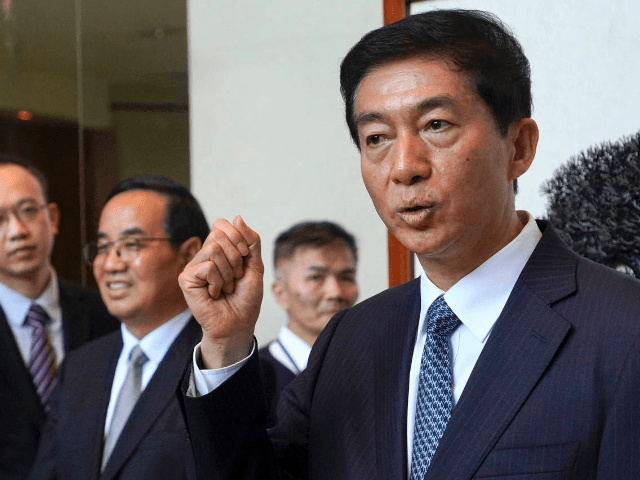Communist China unexpectedly announced a new director of Beijing’s liaison office in Hong Kong on Saturday, replacing two-year veteran Wang Zhimin with Luo Huining, a party apparatchik with no discernible experience in either foreign affairs or Hong Kong.
The Hong Kong Free Press noted Luo, 65, was given the job of Deputy Chairman of the Financial and Economic Committee of the National People’s Congress less than two weeks ago, a position typically given to retiring bureaucrats on their way out of government office.
Luo’s appointment as Hong Kong liaison came as a surprise to most observers, although Reuters noted Beijing had been mulling over a personnel change for some time, perhaps moving slowly because it did not wish to give the impression that Wang was forced out of office by the protest movement.
However thin his resume might be, Luo definitely had the current Chinese Communist Party line on Hong Kong down pat, as quoted by the HKFP:
Luo said the situation in Hong Kong over the past six months was worrying: “We all eagerly hope Hong Kong can return to the right track. As President Xi Jinping said in his new year remarks, without a harmonious and stable environment, there will not be a home where people can live and work in peace,” he said.
He said the “One Country, Two Systems” formula offers the best advantages for Hong Kong.
“I believe that, with the hard work of Chief Executive Carrie Lam, the government, and all sectors of society, the Chinese constitution and the Basic Law will be fully implemented in Hong Kong, the ‘One Country, Two Systems’ principle can be implemented smoothly and successfully in the long-term [and] the long-term prosperity and stability of Hong Kong can be ensured,” he said.
“I am fully confident about that,” he said, raising a fist.
Luo definitely looks a bit scarier with a raised fist than Wang, who has been shuffled back to Beijing as Deputy Head of the Central Institute for Party History and Literature Research. The HKFP quoted some speculation that the new liaison’s economic background will make him better suited than Wang to deliver the message that Hong Kong needs to drop the protests and begin toeing Beijing’s line if it wants to avoid financial ruin.
The South China Morning Post speculated Wang was put out to pasture for misreading the mood in Hong Kong at several critical junctures and sending bad policy advice back to Beijing, particularly the mistaken belief that a silent majority of stability-seeking Hong Kongers would trounce revolutionaries in November’s district elections.
Quite the opposite result came to pass in November, with pro-democracy politicians all but wiping out the pro-Beijing slate of candidates. The district elections have little real impact on how Hong Kong is governed, a point the protesters highlighted by calling for direct legislative elections as one of their “Five Demands.”
Wang’s replacement Luo is a higher-ranking official with a resume as an “enforcer and troubleshooter” whose clear desire to retire soon means he has no future career ambitions to worry about. He is also clearly a minister of internal affairs rather than a diplomat, which could be a way for China to emphasize that it rejects foreign involvement in the Hong Kong crisis.

COMMENTS
Please let us know if you're having issues with commenting.